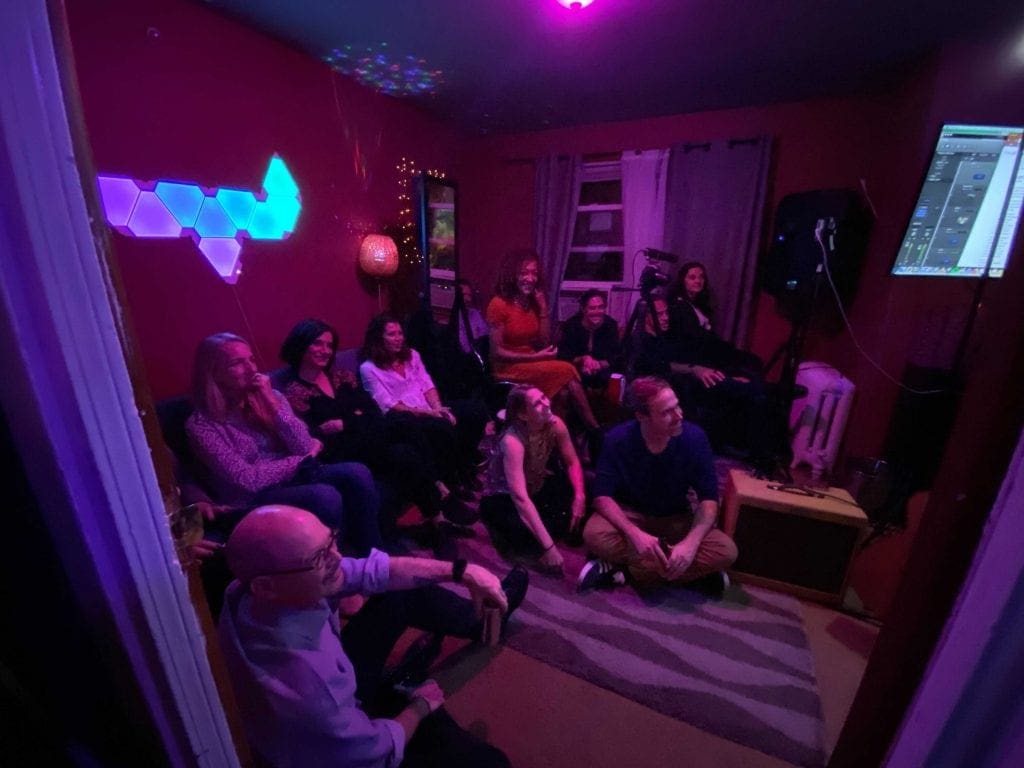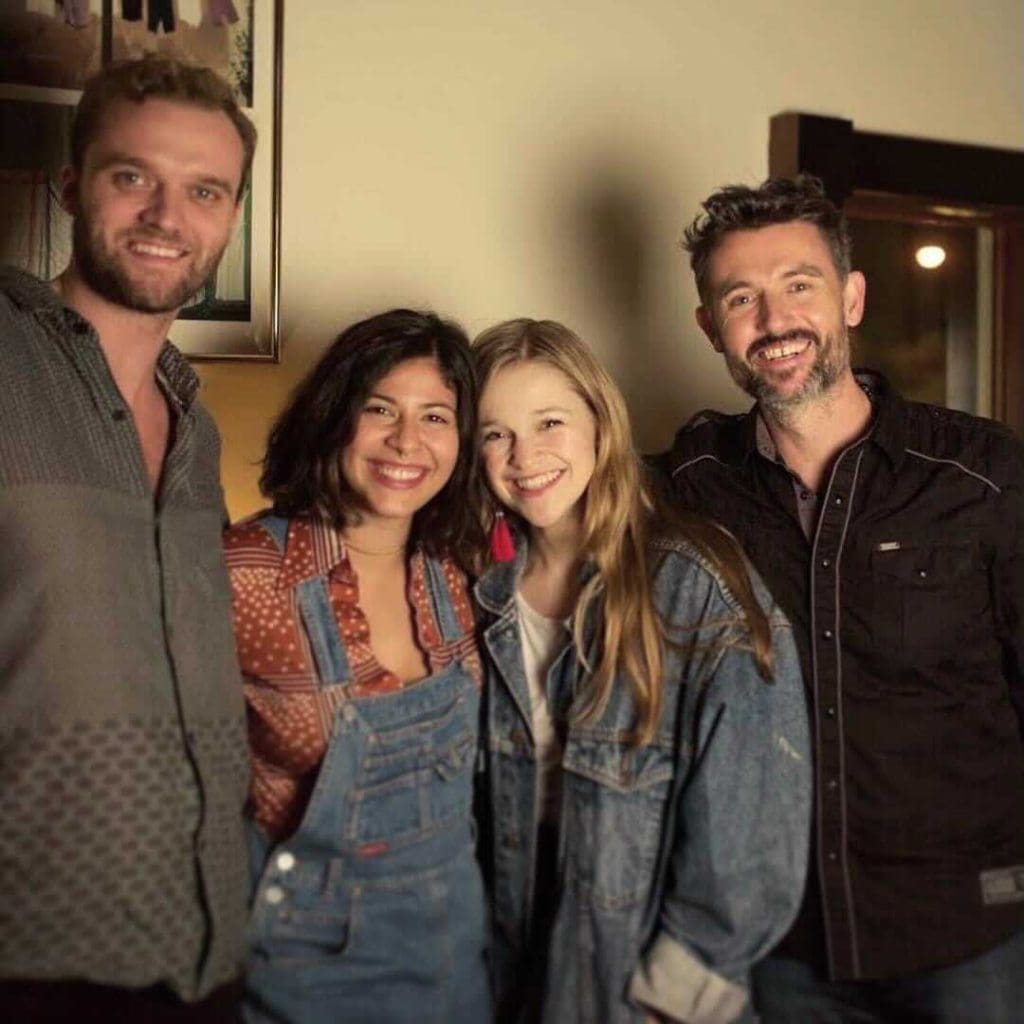At Tim Welch Vocal Studio in Jersey City, NJ, you’re never too old to explore your passion for singing. Every week, singers of all ages and proficiencies work with the studio’s team of instructors to discover their true voice. In recent years, the studio has noticed an increase in adult students eager to start voice lessons. Tim Welch, the studio’s owner, recognized this communal need for a creative outlet shortly after opening practice spaces in Maplewood and South Orange.
As adults, we sacrifice almost everything for our families and/or careers. More often than not, this means our own personal enjoyments are neglected as everyday responsibilities take priority. Despite preaching self-fulfillment to their loved ones, many of Welch’s students realized they weren’t doing anything to bring themselves joy. Regardless of how good they were at it, what hobbies did they love being involved in?
“We noticed that this community started bubbling up of successful people who are just looking for something else to do in their lives,” Welch said.
Building a Supportive Community
While he was happy to take on new students, Welch and his team faced a dilemma. How would they create an environment that catered to both professional singers and inexperienced newbies? Most beginners, Welch said, are shy when they first start taking lessons; they’re embarrassed to sing in front of anyone for fear of being judged. Building a safe space where new students were comfortable experimenting vocally was imperative to the studio’s overall goal.
Additionally, Welch felt generating a supportive community within his clientele would be beneficial to the newcomers. The advanced students often encourage the new recruits, even offering their own advice or tips. Once this uplifting atmosphere was established, Welch witnessed a sudden spike in prospective students.
“At first, 35 percent of our students were adult hobbyists. Then it was 40, then it was 45, then it was 50,” Welch laughed. “And now, it’s up to like 65 percent or more. Our current studio is all people who are doing it just for the joy of singing.”

A Therapeutic Escape
Singing, for many adult students, has become somewhat of a lifeline over the course of the last year. Practicing with Welch and his phenomenal group of instructors has helped distract his students from the stressors of everyday life, even if it’s just for 30 minutes every week. While Welch jokes that he is not a therapist, these sessions can be very therapeutic to some. At the start of every vocal lesson, Welch and his fellow teachers got in the habit of checking in with their students to see how they’re feeling mentally.
“You can’t really have a good voice lesson if you’ve got a lot of stuff bothering you,” he said. “For instance, if something just happened between you and your child, you’re going to show up to a voice lesson with your mind spinning, and you’re not going to sing well.”
After this brief check-in, Welch and his students get to work. An unexpected yet substantial part of the performing process, in addition to learning the proper vocal techniques, is overcoming singing traumas. So many of Welch’s students enter the studio under the impression that they have a bad singing voice because someone or something in their past made them think so. Offhand comments or upsetting memories from their childhoods have unfortunately deterred a good deal of students from singing for most of their lives.
“Our voice is the primary way that we represent ourselves in the world,” Welch said. “When someone wounds your voice, it’s like they wound you. It’s very personal.”

Vanquishing Your Vocal Fears
Because so much of our identity is tied to our voice, Welch and his co-workers incorporate a lot of empowerment work into their weekly lessons. By changing the way someone thinks about themselves first, their voice changes as a result. Pointing out all the ways in which the student is succeeding ultimately helps them build a genuine sense of confidence.
“Before we were [teaching] online, there were tissue boxes in every room for a reason,” said Brian Wiseman, an instructor at the studio. “There’s a lot of crying during a voice lesson. There’s a lot of emotions that come up, and there’s a lot of breakthroughs that happen.”
With support from the entire staff and their peers, students at the Tim Welch Vocal Studio are able to conquer their performing fears and rediscover their love of singing. For those interested in starting voice lessons but are a bit apprehensive, Wiseman says not to be afraid. The studio’s coaches are here to help you improve and become a better singer in a fun and judgment-free way.
“There’s so much joy that you know that you’re missing out on,” Wiseman explained. “Most people coming in have had this desire for a while, and there’s no point in waiting any longer. Singing is a good way to work on yourself, to help build the confidence you didn’t know you had.”
To learn more about the Tim Welch Vocal Studio and their lesson options, visit their website today.
Main image from Tim Welch Vocal Studio Facebook.
Jamie Corter is a 21-year-old aspiring journalist from Sparta, NJ. In her free time, she enjoys volunteering, discovering new TV shows, and spoiling her cat.
- Jamie Corterhttps://thedigestonline.com/author/jcorter/
- Jamie Corterhttps://thedigestonline.com/author/jcorter/
- Jamie Corterhttps://thedigestonline.com/author/jcorter/
- Jamie Corterhttps://thedigestonline.com/author/jcorter/


